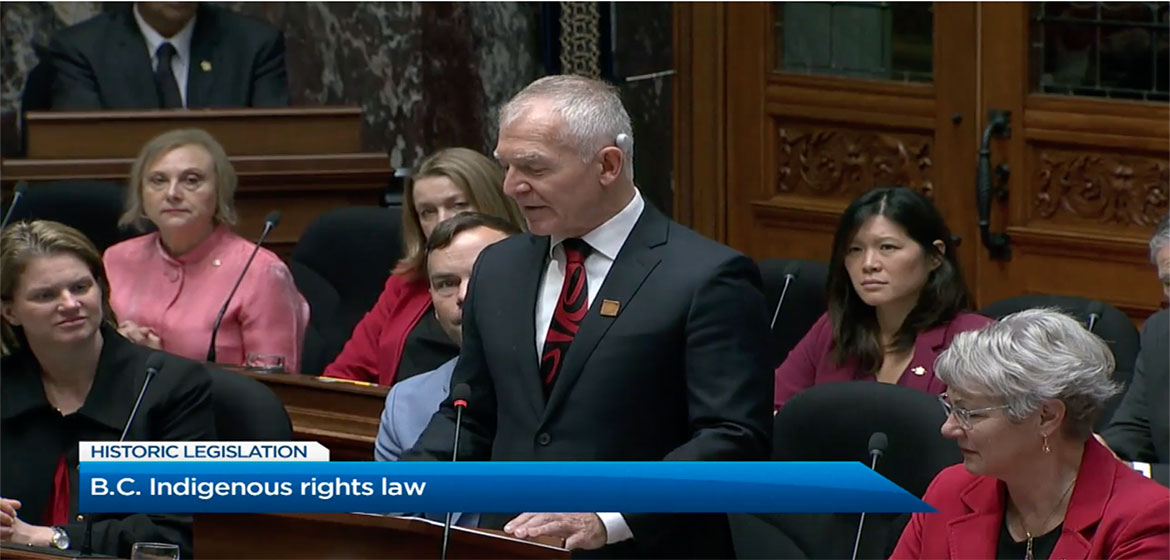British Columbia has become the first jurisdiction in Canada to pass legislation implementing the United Nations Declaration on Indigenous Peoples (UNDRIP).
The legislation, dubbed Bill 41, passed the committee stage and third reading at the B.C. legislature unanimously on Tuesday, to cheers and applause from MLAs on both sides of the house.
Earlier Tuesday, Indigenous leaders urged the opposition BC Liberals to support the bill, after it appeared to be stalled in committee.
The legislature is scheduled to end its current session on Thursday, and if the bill did not pass by then. it would have died on the order paper.
The bill must receive Royal Assent, which is expected to take place Thursday, before coming into force.
However, its impact will not be felt immediately. The legislation is designed to ensure that all B.C. laws are consistent with the 46 articles of the UNDRIP, a process expected to take some time.
The legislation requires that Indigenous peoples are included in all decision making that impacts their rights.
It also calls for a government action plan on how the objectives of the declaration are being met, which will require annual reporting.
The legislation, which will apply to all existing and yet-to-be-introduced legislation, was developed in collaboration with the First Nations Leadership Council at the direction of First Nations.
This legislation creates a framework for reconciliation in B.C., in keeping with the Calls to Action of the Truth and Reconciliation Commission.
Among the most controversial provisions in the declaration is the requirement for all projects on Indigenous territories to receive consent from those communities.
Critics have warned that this provision could amount to a veto on resource projects.
Premier John Horgan has rejected that characterization, saying that the provision is instead an important tool to require conversations and consultation with Indigenous peoples about projects that will affect them.
— With files from Richard Zussman, Keith Baldrey and the Canadian Press
Source:
Related to SDG 10: Reduced inequalities and SDG 16: Peace, justice and strong institutions



